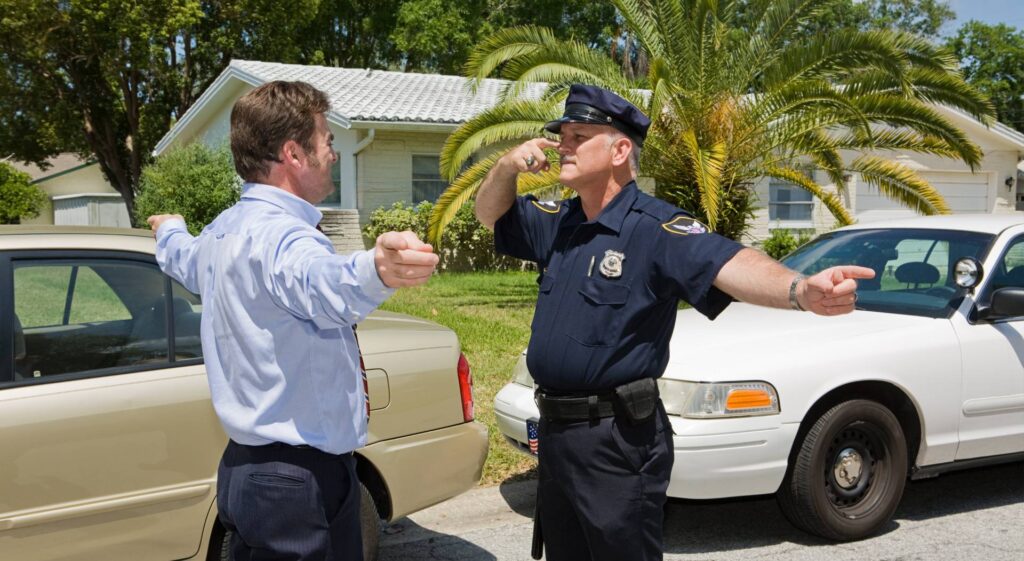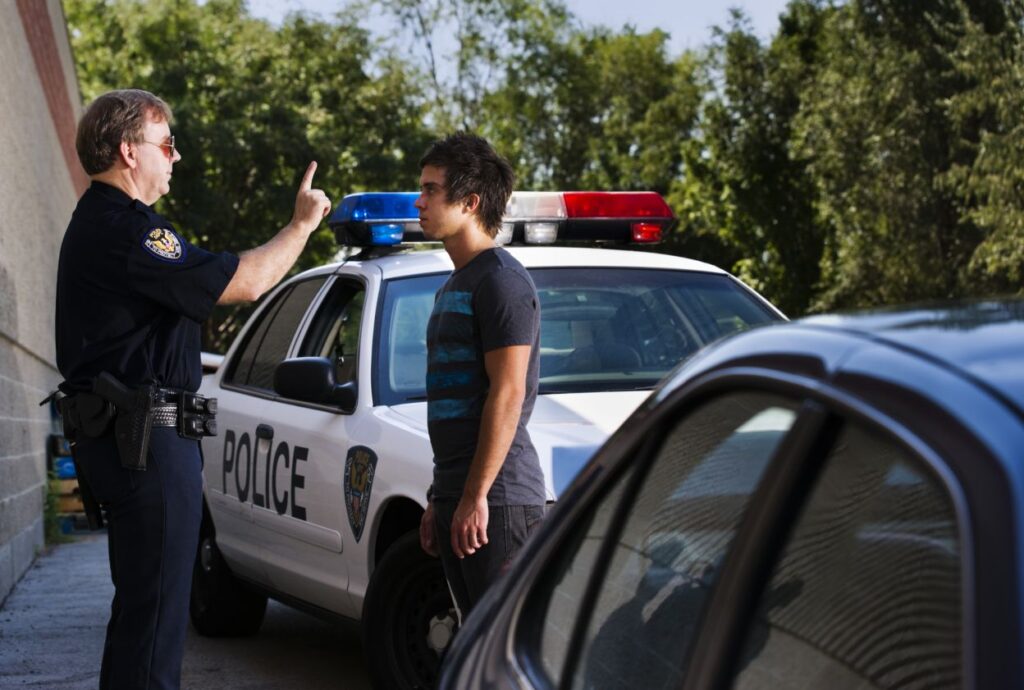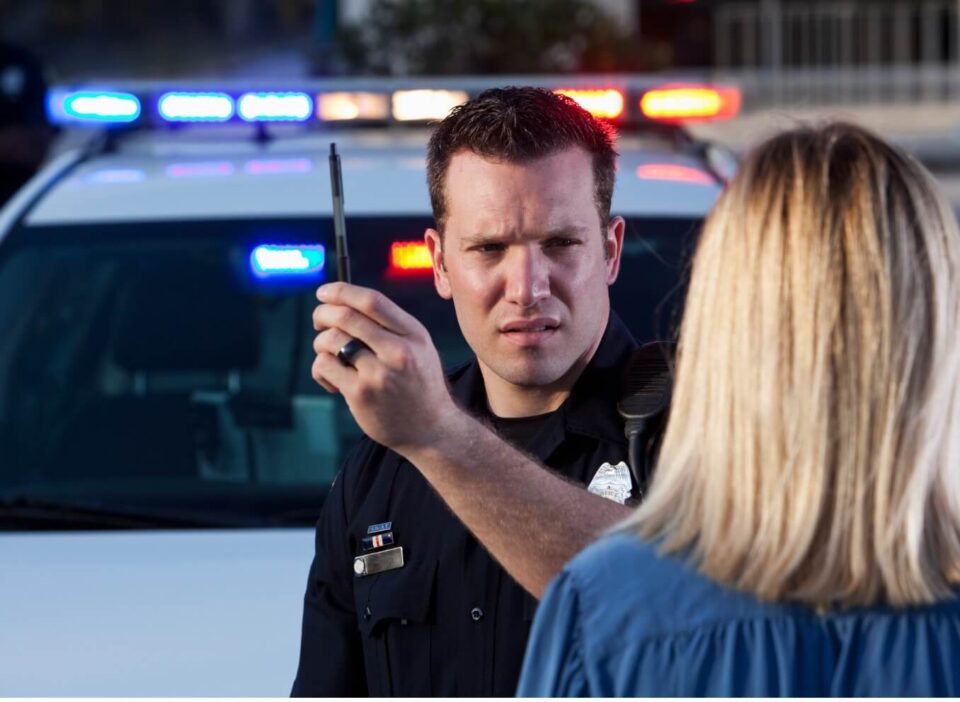Field sobriety tests (FSTs) serve as a critical tool for officers to assess impairment due to alcohol or drugs. These tests, designed to evaluate coordination, balance, and cognitive function, can significantly impact the course of a traffic stop and potentially lead to arrests. This article offers an in-depth exploration of how FSTs operate and provides strategic advice on how to navigate them.
The Essence of FSTs

Field Sobriety Tests (FSTs) are a crucial part of the toolkit that law enforcement officers employ to assess potential impairment during traffic stops.
When navigating the complexities of these tests, the guidance of a seasoned DWI lawyer can be invaluable. These tests are not just routine procedures; they are scientifically developed exercises that offer insights into an individual’s physical and cognitive state.
The National Highway Traffic Safety Administration (NHTSA) has given its stamp of approval to three standardized tests, each designed to evaluate different aspects of motor control and attention:
- Horizontal Gaze Nystagmus (HGN): This test is grounded in the physiological reaction known as nystagmus, an involuntary jerking of the eye that becomes exaggerated under the influence of alcohol or certain drugs. By observing the angle at which the jerking begins as the eye tracks a moving object, officers can gauge impairment levels. The HGN test is subtle yet sophisticated, relying on the involuntary physical response that is difficult to mask or control, making it a reliable indicator of impairment.
- Walk-and-Turn (WAT): The WAT test challenges an individual’s ability to complete multi-tasking activities. It tests the suspect’s balance, coordination, and the ability to follow specific instructions simultaneously. This test reflects everyday tasks, such as walking, which might be significantly impaired under the influence. The precise nature of the instructions and the requirement for physical coordination offer clear evidence of impairment when not performed accurately.
- One-Leg Stand (OLS): Through the OLS test, officers evaluate an individual’s balance and focus, two faculties often compromised by alcohol or drug consumption. Holding one’s balance on one foot requires a concentration that can be difficult to muster if impaired. This test also subtly assesses the suspect’s ability to follow directions and their cognitive capacity to count and comprehend instructions under stress.
How Accurate are These Tests?

Although the standardization of these tests aims to eliminate subjectivity and ensure consistent administration, their effectiveness is not without controversy. Environmental factors, such as uneven road surfaces or poor weather conditions, can unfairly impact performance.
Critics also highlight that certain medical conditions or disabilities could mimic signs of impairment, leading to unjust results. Despite these potential flaws, FSTs remain a cornerstone of DUI detection, with ongoing efforts to refine and improve their accuracy and applicability.
How to Respond to FSTs
The moment you’re asked to step out of your car and perform FSTs can be daunting. It’s a situation that demands not just composure but also an informed perspective on how to proceed. Awareness of your legal rights is paramount, as the decisions you make can have far-reaching consequences.
Know Your Rights

It’s a little-known fact that participation in field sobriety tests is optional in many jurisdictions. This means you’re entitled to politely decline. However, this decision can lead to immediate ramifications, including the possibility of arrest based on other observed evidence of impairment. Understanding the nuances of your state’s laws regarding implied consent is crucial before making such a decision.
Remain Polite and Calm
The attitude and behavior you exhibit during this critical time can greatly influence the officer’s perception and subsequent actions. A confrontational stance can be detrimental, potentially escalating the situation. Demonstrating cooperation and respect can work in your favor, signaling to the officer that you’re not a threat and potentially mitigating the severity of the encounter.
Seek Legal Advice

Invoking your right to consult with an attorney can provide a buffer, giving you time to consider your options and seek professional guidance. Although immediate access to legal counsel may not be feasible, stating your desire to consult with a lawyer puts on record your intent to navigate the situation with legal assistance, potentially influencing the proceedings’ outcome.
Document Everything
Recalling specific details about how the FSTs were administered and the conditions under which they were performed can be invaluable. This includes noting the officer’s instructions, your responses, and any external factors that could have influenced your performance. Such meticulous documentation can play a critical role in your defense, should you contest the charges.
What Happens After?
The aftermath of FSTs can vary widely, from being let go with a warning to facing serious charges. Each outcome presents its own set of challenges and legal pathways.
Passing the Tests

While acing the FSTs might seem like a ticket to freedom, it’s not a guaranteed escape from legal action. Law enforcement officers can draw upon a range of observations to justify further investigation or arrest. However, a successful performance can significantly strengthen your position, providing a solid foundation for your defense.
Failing the Tests
A failure doesn’t equate to an inevitable conviction. The results of FSTs are just one component of the evidence against you. An experienced defense attorney can scrutinize the tests’ administration, seeking inconsistencies or procedural errors that could invalidate the results. Furthermore, alternative explanations for your performance, unrelated to impairment, can be a powerful defense strategy.
Refusing the Tests
Opting out of the FSTs introduces a complex set of consequences. While it may limit the direct evidence against you, the implications of refusal, such as automatic license suspension, need to be carefully considered. Additionally, the prosecution can interpret your refusal as an admission of guilt, a perspective that must be countered strategically in court.
The Bottom Line
Understanding the intricacies of field sobriety tests, your rights, and the potential consequences of your actions equips you to handle such encounters with confidence and foresight. Whether you decide to participate, refuse, or seek legal counsel, the key is to remain informed and calm, ensuring you navigate the situation to the best of your ability.

